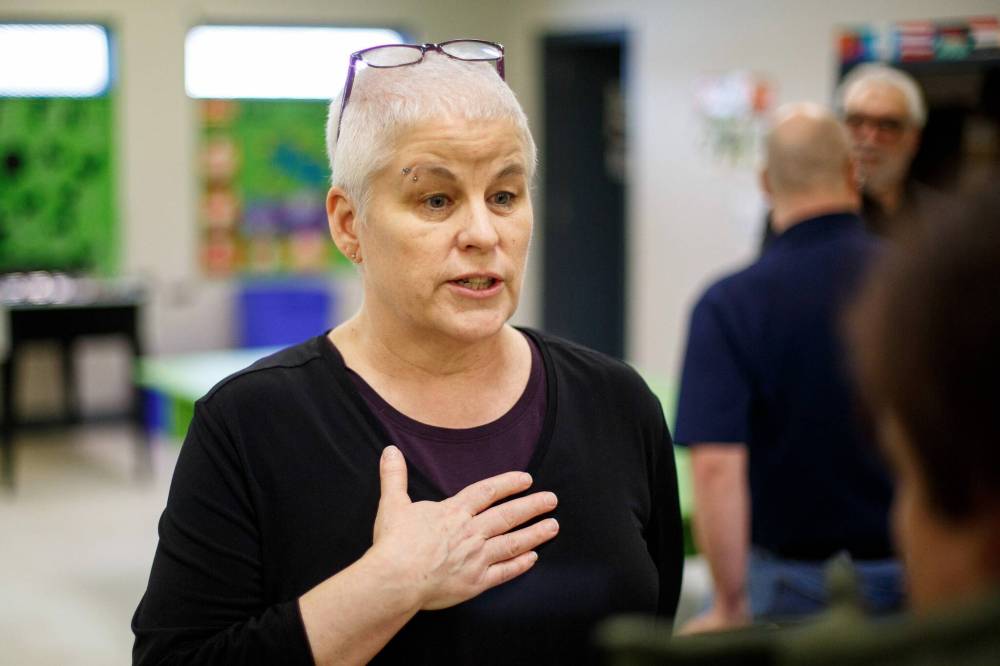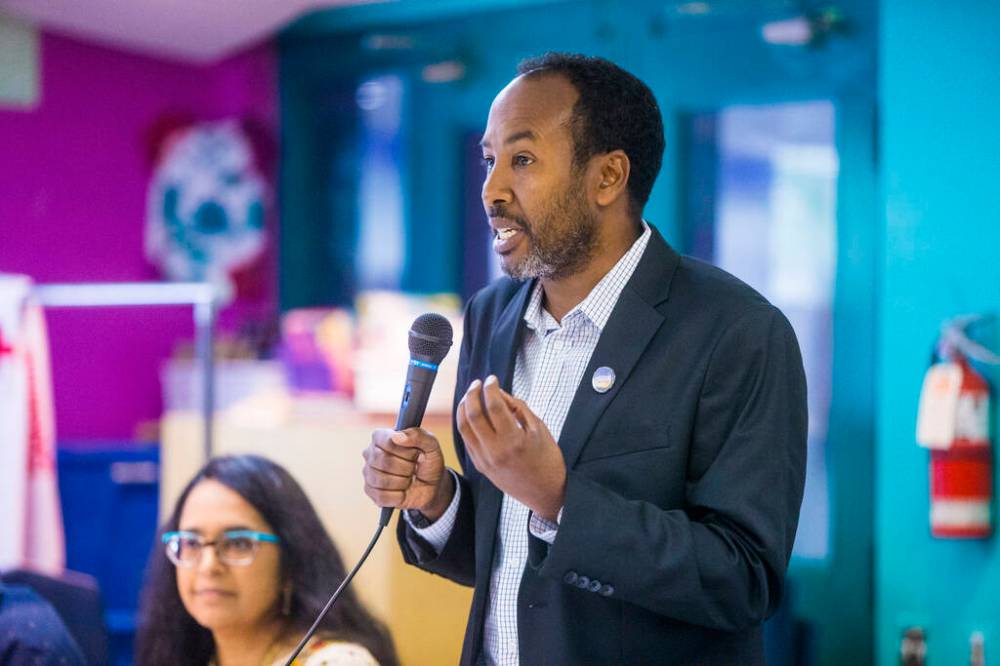Coalition demands end to police response in mental-health calls
Read this article for free:
or
Already have an account? Log in here »
To continue reading, please subscribe:
Monthly Digital Subscription
$0 for the first 4 weeks*
- Enjoy unlimited reading on winnipegfreepress.com
- Read the E-Edition, our digital replica newspaper
- Access News Break, our award-winning app
- Play interactive puzzles
*No charge for 4 weeks then price increases to the regular rate of $19.00 plus GST every four weeks. Offer available to new and qualified returning subscribers only. Cancel any time.
Monthly Digital Subscription
$4.75/week*
- Enjoy unlimited reading on winnipegfreepress.com
- Read the E-Edition, our digital replica newspaper
- Access News Break, our award-winning app
- Play interactive puzzles
*Billed as $19 plus GST every four weeks. Cancel any time.
To continue reading, please subscribe:
Add Free Press access to your Brandon Sun subscription for only an additional
$1 for the first 4 weeks*
*Your next subscription payment will increase by $1.00 and you will be charged $16.99 plus GST for four weeks. After four weeks, your payment will increase to $23.99 plus GST every four weeks.
Read unlimited articles for free today:
or
Already have an account? Log in here »
Hey there, time traveller!
This article was published 13/03/2024 (634 days ago), so information in it may no longer be current.
An alliance of community organizations wants Winnipeg to follow other North American cities and put non-emergent and non-violent mental health calls into the hands of crisis workers, rather than police.
The Police Accountability Coalition said a community-led crisis response should be the default instead of a “police-first” approach, believing it will help to prevent deaths or other negative outcomes.
“It doesn’t need to end in death,” coalition member Kate Kehler said at a news conference Wednesday. “That’s what the worst-case scenario is, but the ongoing harm of somebody who needs help just getting the same response over and over again, feeling completely demoralized and dehumanized by an authoritative approach, is a problem.”
The coalition is pressing city council and the Manitoba government to create a 24-7 non-police-led program similar to a new initiative in Toronto.
MIKE DEAL / FREE PRESS FILES
Mayor Scott Gillingham deferred questions about the proposal to police board chair Coun. Markus Chambers, who did not respond to a request for comment.
The NDP government was non-committal. It has pledged to hire 100 more mental health workers to work alongside law enforcement on non-violent calls. The Winnipeg Police Service also didn’t comment.
“We welcome all voices in having this discussion about ways that we can deploy and enable these mental health workers to do the important work that we expect them to do,” said Justice Minister Matt Wiebe.
Coalition co-chair Abdikheir Ahmed said its meetings with police Chief Danny Smyth and the city’s police board have led to “no results.”
Ahmed said some decision-makers are unwilling to consider a similar program because “it’s easy for them to stick with the status quo.”
MIKAELA MACKENZIE / FREE PRESS FILES 
The group cited concerns about the cost and effectiveness of using Winnipeg police to address “societal failures,” while arguing a police presence is not necessary for all mental health-related calls.
The coalition said its analysis of more than 100 community-led programs in North America shows there was no safety risk to civilian crisis teams in the vast majority of calls.
It said the switch to a program similar to the Toronto Community Crisis Service would free up officers for other matters, because they would no longer attend calls “outside their scope or expertise.”
In January, Smyth said well-being calls had climbed to almost 21,000 per year, to become the most frequent type of call. He said a vast majority of incidents do not require any type of force, while defending police training and procedures.
The coalition of more than 100 community groups was already working on its position paper when at least two recent fatal police-involved shootings occurred while officers responded to mental health-related situations in Winnipeg. In those situations, police said the men were armed with weapons.
The city has an intervention program, Alternative Response to Citizens in Crisis, which started as a pilot project between police and Shared Health in 2021.
It pairs plainclothes officers and clinicians in non-violent, non-emergent situations. It can be accessed via 911 and a crisis response centre.
A Shared Health spokesman said the program is fully staffed, with four clinicians, and expanded from five to seven days a week in December. He said crisis clinicians are available from 9 a.m. to 9 p.m., although specific hours can vary.
The coalition said an ARCC team isn’t deployed until after officers do an initial check. Ahmed said police presence or the visibility of a gun can lead to an escalation in some situations.
During the pilot period, ARCC attended 882 calls involving 530 people, as per program data.
Of those, 83 per cent were resolved by ARCC intervention alone, and 91 per cent of people stayed in the community.
About one in five people was linked or referred to other relevant services.
The number of people taken to hospital emergency rooms by police for mental health reasons dropped by almost 30 per cent.
Kehler and Ahmed said ARCC was formed without enough consultation from the public, especially racialized people.
The coalition said people who die in encounters with Winnipeg police are mostly Indigenous, Black or other racialized people.
The coalition believes ARCC’s risk assessment criteria is unrealistically high, and its metrics for success were set low, because program access was limited.
Kehler and Ahmed believe Winnipeg residents, particularly populations who are over-represented in poverty and the justice system, would be better served by the Toronto model.
The group proposed a steering committee with diverse representation from the community and municipal and provincial governments to craft a similar model for Winnipeg.
The coalition said it would be for the committee to decide how the program should be structured or how many staff would be needed, starting with a staged approach.
“It should be really rooted in the community — not a top-down thing where somebody decides that this is what you need and this is what is going to be given to you,” said Ahmed.
Launched in 2022, Toronto’s program received 6,827 calls, mostly for a person in crisis or a well-being check, in its first 13 months, while being piloted by the city and community organizations in four areas.
The Toronto service receives calls from 911, a 211 support line and directly from community partners 24-7. Assessments determine whether crisis workers or police should respond to the call.
Toronto, a much larger municipality than Winnipeg, plans to expand the service citywide. A report to council estimated the expansion would cost $34 million in 2026, with 43 staff members.
Toronto Deputy Mayor Ausma Malik hailed the program a success. Her ward of Spadina-Fort York is home to two of the pilot locations.
“With 78 per cent of calls transferred from 911 being handled by the (community crisis service), and not resulting in police involvement, it reiterates what we already know: that people experiencing crisis should be treated with strong, appropriate supports, in a community-based way, for what they are going through — not criminalized,” she wrote in an email. “It also ensures that all our emergency services are doing what they are uniquely equipped for.”
— With files from Danielle Da Silva
chris.kitching@freepress.mb.ca

Chris Kitching is a general assignment reporter at the Free Press. He began his newspaper career in 2001, with stops in Winnipeg, Toronto and London, England, along the way. After returning to Winnipeg, he joined the Free Press in 2021, and now covers a little bit of everything for the newspaper. Read more about Chris.
Every piece of reporting Chris produces is reviewed by an editing team before it is posted online or published in print — part of the Free Press‘s tradition, since 1872, of producing reliable independent journalism. Read more about Free Press’s history and mandate, and learn how our newsroom operates.
Our newsroom depends on a growing audience of readers to power our journalism. If you are not a paid reader, please consider becoming a subscriber.
Our newsroom depends on its audience of readers to power our journalism. Thank you for your support.





